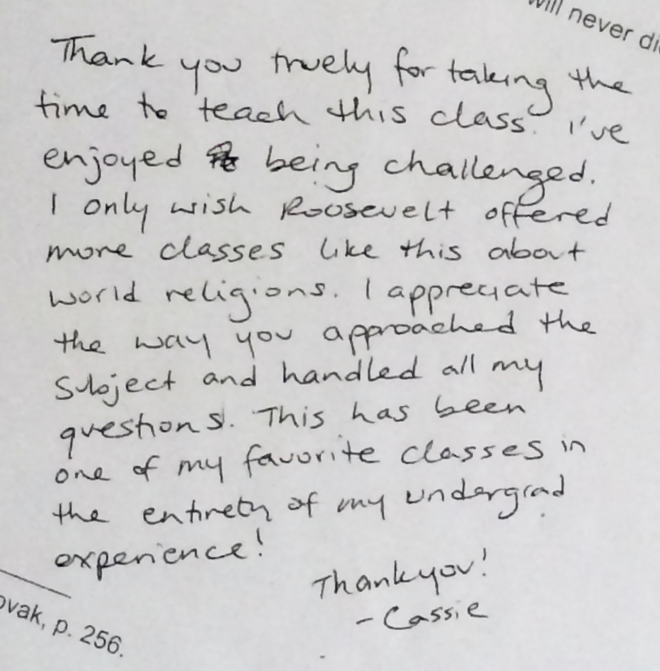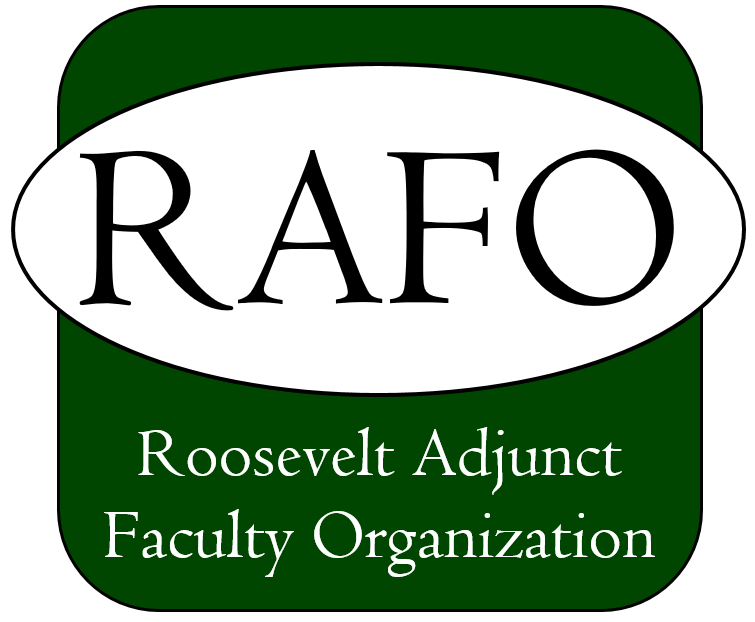
I’ve taught off and on (more off, lately) at Roosevelt since the fall of 1997 – nearly twenty years now. During that time I’ve taught Business Ethics, Technology and Human Values, Logic, Existentialism, and World Religions.
One of my students from the World Religions class I taught during the fall 2013 term wrote me a very kind and generous thank you note (written on the back of her 100 question multiple choice final exam). And when she wrote, “I’ve enjoyed being challenged,” she struck gold in this old curmudgeon’s heart.
The name of the game in higher education is retention, retention, retention. One of any college’s most intensive (and expensive) tasks is courting its first year students, persuading them to stay on and earn their degree from Alma Mater U. (and, hopefully, become future Alma Mater donors). To retain students, many colleges sell the college “experience” at the expense of the college education. For those being courted, faculties need to keep rigorous expectations to a minimum.
Adjuncts (more than full time faculty) face being gored on the horns of this dilemma: do you expect less of your students (and that’s ok)? Or do you set the bar high for them (but risk getting fired)? Luckily, this dilemma has a marvelous corollary: Do you teach to live? Or do you live to teach?
Let’s call it the passion corollary. If you teach to live, teaching is not your passion. If you live to teach, that is, if you know that your life would be less enjoyable, less challenging, more boring, and more mundane if you cannot teach, then I have some very bad news – you, my friend, are a teacher.
No one gets from the old to the new without doing some heavy duty stretching. When you don’t challenge your students, you let them down – because you don’t think they can do it. I always love the line from Robert Browning: “Ah, but a man's reach should exceed his grasp / Or what's a heaven for?” ("Andrea del Sarto", line 98). Exactly.

